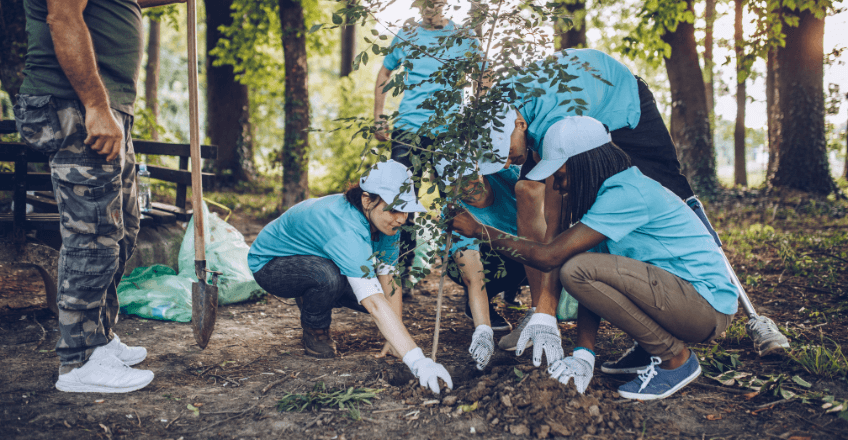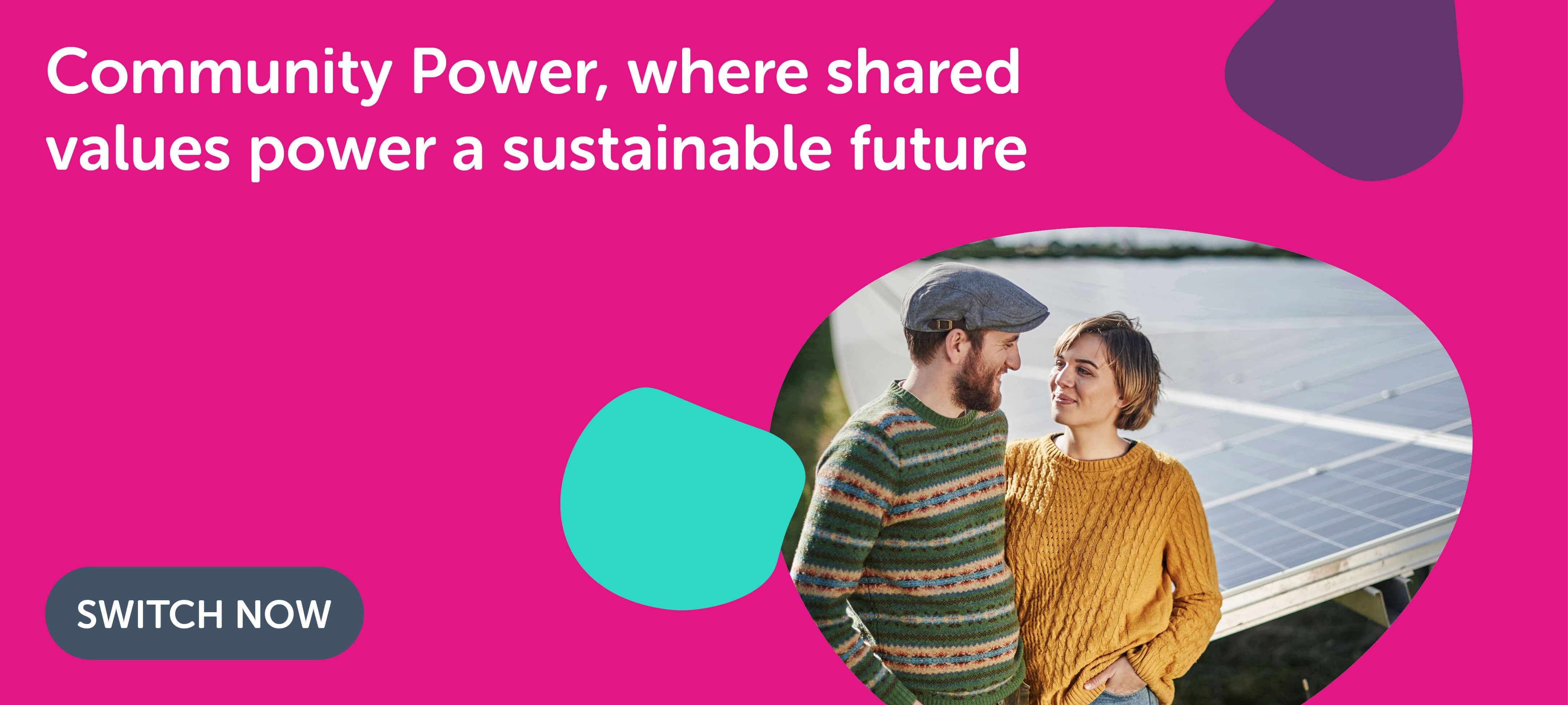How does planting a tree achieve a lower carbon future?
Published date: June 2023

For the world to collectively reach Net Zero by 2050, all available methods of carbon reduction must be utilised to the full. This starts with the reduction of emissions, with governments, businesses and individuals taking steps to reduce their direct and indirect emissions.
However, fully combatting climate change and avoiding catastrophic levels of global warming will require the removal of some greenhouse gases which are already in the air. Luckily, the natural world has evolved incredibly efficient methods for sequestering carbon, and one of the most effective ways to plan for future decarbonisation is through tree planting.
Your Co-op understands the scale of this task, and we celebrate the steps that our customers and members take in reducing their carbon footprints by supporting the replanting of lost forests around the world to absorb more carbon in the future.
Why plant trees?
Your Co-op plants trees as part of our long-term efforts to combat climate change because of trees’ ability to absorb carbon in from the atmosphere and store it, acting as a carbon sink.
This carbon absorption is entirely natural and a key part of the carbon cycle, here are some other reasons why we plant trees:
- Trees provide shade, shelter, habitat and food for local wildlife. Planting trees supports biodiversity and helps to prevent species loss.
- Trees provide employment opportunities for local people by planting and collecting the produce. Fruits and nuts can be consumed and sold without damaging the trees.
- Soil that is held intact by tree roots is far less likely to degrade or become prone to landslides. Creating a safer environment for locals and animals.
- Trees can help to purify air and water sources, providing better health outcomes for local communities.
- Coastal tree species like mangroves provide excellent natural barriers which protect the coastline from larger waves and storms.
- Research suggests green spaces have a positive impact on our mental health.
How effective is planting trees for carbon reduction?
Trees vary significantly in their carbon absorption, with an average tree having an annual intake of 21.8kg of CO2. The precise amount of decarbonisation each tree delivers is difficult to determine due to several factors affecting a tree, such as location, health, species, local climate and lifespan.
However, our climate impact partners Ecologi ensure that only the most carbon-efficient species of trees are used for Your Co-op's growing forests. In fact, many of the trees Your Co-op customers are actioning for plantation are mangroves, for their ability to store greater amounts of carbon and protect coastlines. Research suggests that a hectare of mangroves can absorb approximately 3,083 tonnes of carbon dioxide over a 25-year lifetime.
The Committee on Climate Change believe the UK alone needs to plant 30,000 hectares of new woodland each year until 2050 to reach Net Zero. This makes it clear that regardless of the exact CO2 intake, planting as many trees as possible will play a key role in future decarbonisation. In fact, trees still exceed the efficiency of any man-made carbon capture tech that currently exists.
How do customers plant trees?
Your Co-op’s climate broadband and mobile products rely on carbon reduction projects to achieve their climate positive status. By investing in renewable energy projects and restoration/preservation of existing habitats, we can prevent the release of additional CO2 from fossil fuels or from the destruction of carbon rich habitats. We don’t include the planting of trees in our commitment to offering climate positive products because it is so difficult to predict exactly how much impact each tree will have over it’s lifetime.
We do plant lots of trees though! We plant a tree every month for every customer on one of our products, as a way of celebrating the ethical choice they have made. These trees are planted in the Your Co-op Ecologi forest, as part of our pledge to plant 1 million trees over the next 10 years. Therefore, every sign-up or purchase helps to strengthen a long-term climate solution, as well as in the short term.
So what does this mean in practice with Ecologi? The method of distributing the funding Ecologi receives from Your Co-op guarantees the positive impact of our community is being felt all around the world with new forests being targeted worldwide. The planting process receives extensive planning to check that ecologically appropriate trees are used in the right places, effective coordination with local communities, and providing trees with protection from all outside threats. Eliminating risks and ensuring that customer forests survive and thrive, to support biodiversity and future carbon sequestration.
Where are Your Co-op forests already growing?
Your Co-op customers are funding reforestation projects all over the world and from customers with our different businesses including:
To date, Your Co-op trees have been planting trees in over 13 countries across 4 different continents in Africa, Asia and South America.
- DRO Congo
- Ethiopia
- Kenya
- Mozambique
- Morocco
- Madagascar
- Tanzania
- Uganda
- Indonesia
- Argentina
- Brazil
- Columbia
- Peru
The trees are planted with Ecologi's plantation partners, Eden Reforestation Projects who alleviate extreme poverty by paying local people a fair wage to plant trees and manage the forests. This consistent income is vital for families, helping them to afford nutritious food, send children to school, and even start their own businesses to become more economically independent.
Your Co-op customers make more than a climate-positive difference but support an ethical chain of life-changing support for people across the world.
To help make a climate-positive difference with Broadband, Mobile or SIM, switch to Your Co-op.






Leave us your comment
You need to login to submit a comment. Please click here to log in or register.